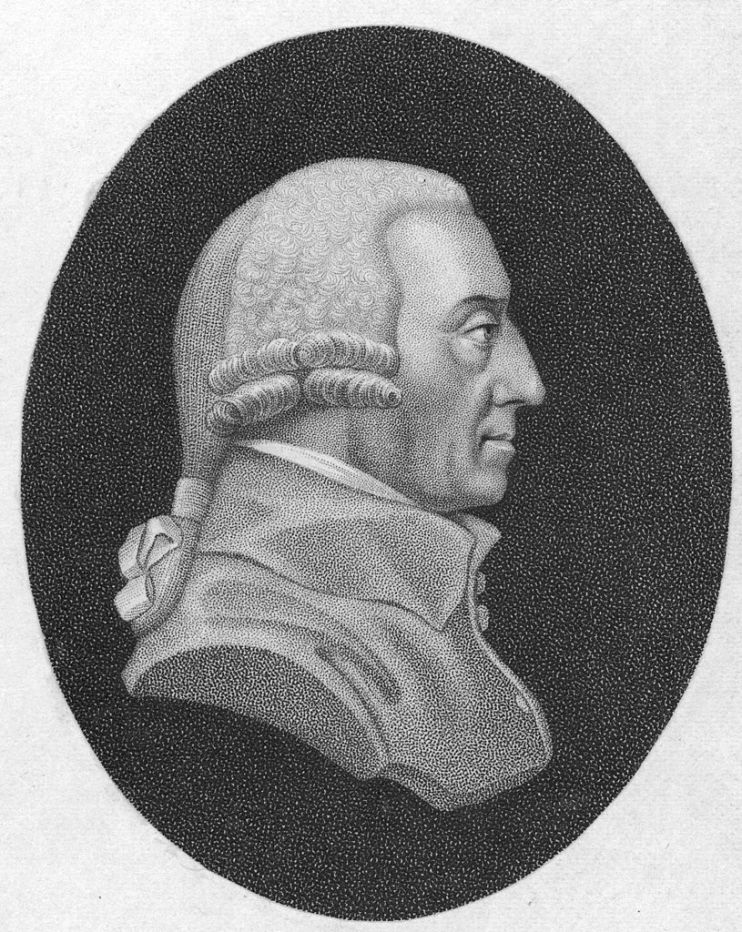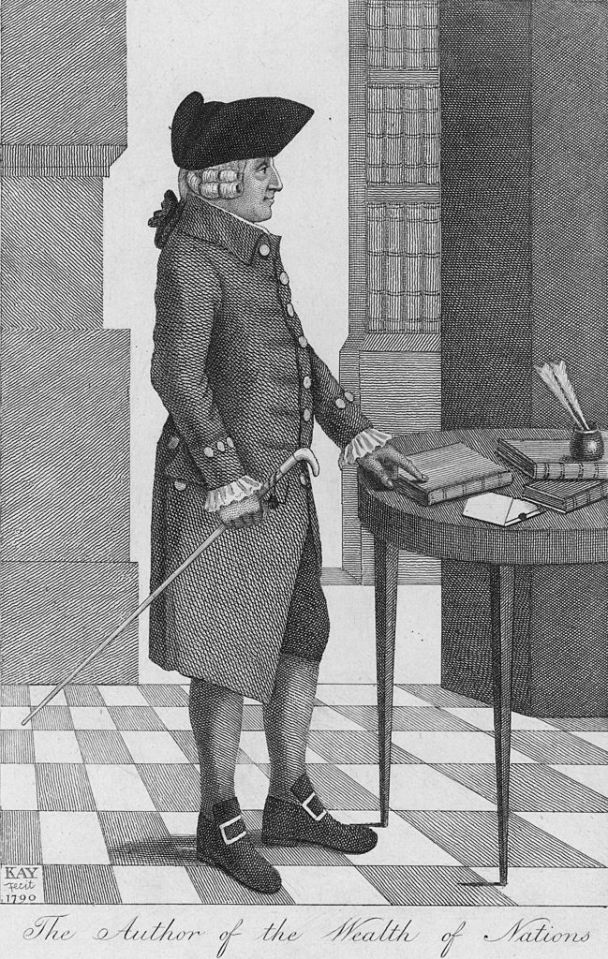Adam Smith 300: Nine global economists have their say on the pioneer’s importance

Friday, 16 June 2023 marks the 300th anniversary of Adam Smith’s baptism. The German economic historian and sociologist Rainer Zitelmann, author of the book In Defence of Capitalism , asked free-market economists from nine countries to assess the historical significance of Adam Smith.
Professor Stefan Kooths, Kiel Institute for the World Economy, IfW, Germany
“What we today refer to as classical economic thinking was revolutionary at the time, especially the insight that a competitive system can show socially beneficial results from the striving of self-interested actors. Smith was not the first to arrive at this idea, it was already in the air. But with Wealth of Nations he created a reference that enabled this worldview to spread more widely. So, his achievement lies less in his originality but in his gift for systematisation.
If Adam Smith could see how capitalism has evolved over the past centuries, he would find ample confirmation of his central view that the best outcomes for society are achieved when people enjoy the freedom to make their own fortunes. Not for allocative reasons alone, but also, because this freedom enhances human sympathy. For the same reason, he would be hardly surprised by the poor performance of the massively expanded welfare states whose large bureaucratic apparatuses weaken compassion for fellow citizens by absolving individuals from taking personal responsibility for those in a less privileged position.”
Professor Alberto Mingardi, Associate Professor, History of Political Thought,
IULM University in Milan, Italy
“I think it is hard to overstate the importance of Smith. True enough, other people wrote about economic matters before and indeed you have many substantial contributions in the earlier eighteenth century: from Richard Cantillon to the Fisiocrats. Certainly Hume’s essays planted the seeds of classical economics too and you got brilliant insights on commerce in authors such as Montesquieu.
But economics was lacking the sort of ponderous treatise which can truly be seen as a foundational text. Smith supplied it, writing a book which is unique in being many different things at once, but all brilliantly. It is a theoretical work, it lays down the foundations of a science, but is also a work of history and something of a reportage. It is written by a man whose passion was to understand and explain, but it could persuade: and in fact it did persuade many, opening their eyes to the virtues of free exchange and the limits of the mercantile system.”
it lays down the foundations of a science, but is also a work of history and something of a reportage. It is written by a man whose passion was to understand and explain, but it could persuade.
Professor Weying Zhang, Peking University, China
“Adam Smith’s most important contribution to economic thought: Self-interested strangers in a large-scale society can cooperate, benefit one another, and be in harmony through a division-of-labor-based market system. Individuals can benefit only by serving others first in the market. Seeking of self-interests in the market is not immoral. For Adam Smith, the market is a spontaneously evolving order, not a designed order. China’s rapid economic development over the past four decades is a victory of Adam Smith’s idea of the market. China needs Adam Smith, not John M. Keynes.”
Professor Emmanuel Martin, Aix-Marseille University and Catholic Institute of Vendée in France
“In my view, the first three “evolutionary” chapters of Wealth of Nations were crucial. The idea that because humans exchange they can develop division of labour (which increases productivity and thus incomes), which in turn depends on the size of the market.”
Professor Gerhard Habermann, University if Potsdam, Germany
“One should not overlook what the School of Salamanca had already achieved theoretically, but in practical terms Adam Smith was decisive. He, alongside other great Scots (such as David Hume and Adam Ferguson), recognised the nature, the functioning of a spontaneous order.”
Professor Jesús Huerta de Soto Professor of Political Economy, King Juan Carlos University Madrid, Spain
“Adam Smith’s importance is overstated and he cannot be considered the founder of Economics at all but Richard Cantillon and the Spanish Scholastics. Every one of his correct contributions was not his but co-opted from his predecessors. Those he did originate were wrong: His support of the navigation acts, his tax ideas and above all his long-term equilibrium analysis based on the cost of production (labour). Smith’s analysis is the foundation of Marxism (labour theory of value) and interventionism. With friends like Adam Smith, free-market libertarians do not need any enemies (with Adam Smith it is enough!)”
Professor Leszek Balcerowicz, former vice prime minister and finance minister, Civil Development Forum Foundation, Poland
“It is easy to point out that some of Smith’s important ideas had been put forward before him and he propagated certain bad ideas, mainly the labour theory of value. But his An Inquiry into the Nature and Causes of the Wealth of Nations is a masterpiece because of its breadth of topics and clarity of explanation. Smith’s central idea that economic development requires economic freedom and correspondingly limited government has been proven right, especially when violated. Adam Smith is also a precursor of institutional economics which has been very important and – until recently – so much neglected in the world.”

Sooyoun Hwang, former professor of Public Choice and Austrian Economics / Kyungsung University, Busan, South Korea
“He is significant in that he was (almost) the first to advance the systematic theory of human action in both economic and moral affairs. For Koreans, I think that Adam Smith’s greatest contribution was ascribing the utmost importance to commerce. Traditionally, in Korea, since the Chosun dynasty, there has been a preference and class order of occupations: from government employee, through agriculture, to engineering, and lastly to commerce. Engineering and commerce were regarded as the basest occupations. Now, from the teachings of Adam Smith, we can learn that for us to prosper, top priority should be given to commerce and the order of priorities should be reversed. Now, in modern Korea, it is slowly changing. If Korean people learn more about Adam Smith, more people will realise this.”
Professor Gia Jandieri, Founder, Vice-President New Economic School – Georgia
“His major role was to explain and confirm that the world was governed by market rules. These rules were widespread, but nobody called them rules before him. I once checked and found tens of great Georgian proverbs that have pure economic sense – I assume they were invented before Adam Smith by people who had never even heard of economics.”
Eammon Butler, Founder and President of the Adam Smith Institute, London
“Smith supported free trade and free commerce for the same reason I do, namely that it is the best way of improving the condition of the working poor – or more properly, the best way to allow the working poor to better their own condition. Bettering your condition, he thought, is a natural human desire, but it is too often blocked by onerous taxes and regulations imposed by people in authority. And too often, those rules are deliberately proposed by established businesspeople who want to keep out any competition, and imposed by their friends and cronies in government. Sweep that away, says Smith, and the ’system of natural liberty’ will bring prosperity to all.”
Rainer Zitelmann is a historian and sociologist. His latest book is In Defence Of Capitalism